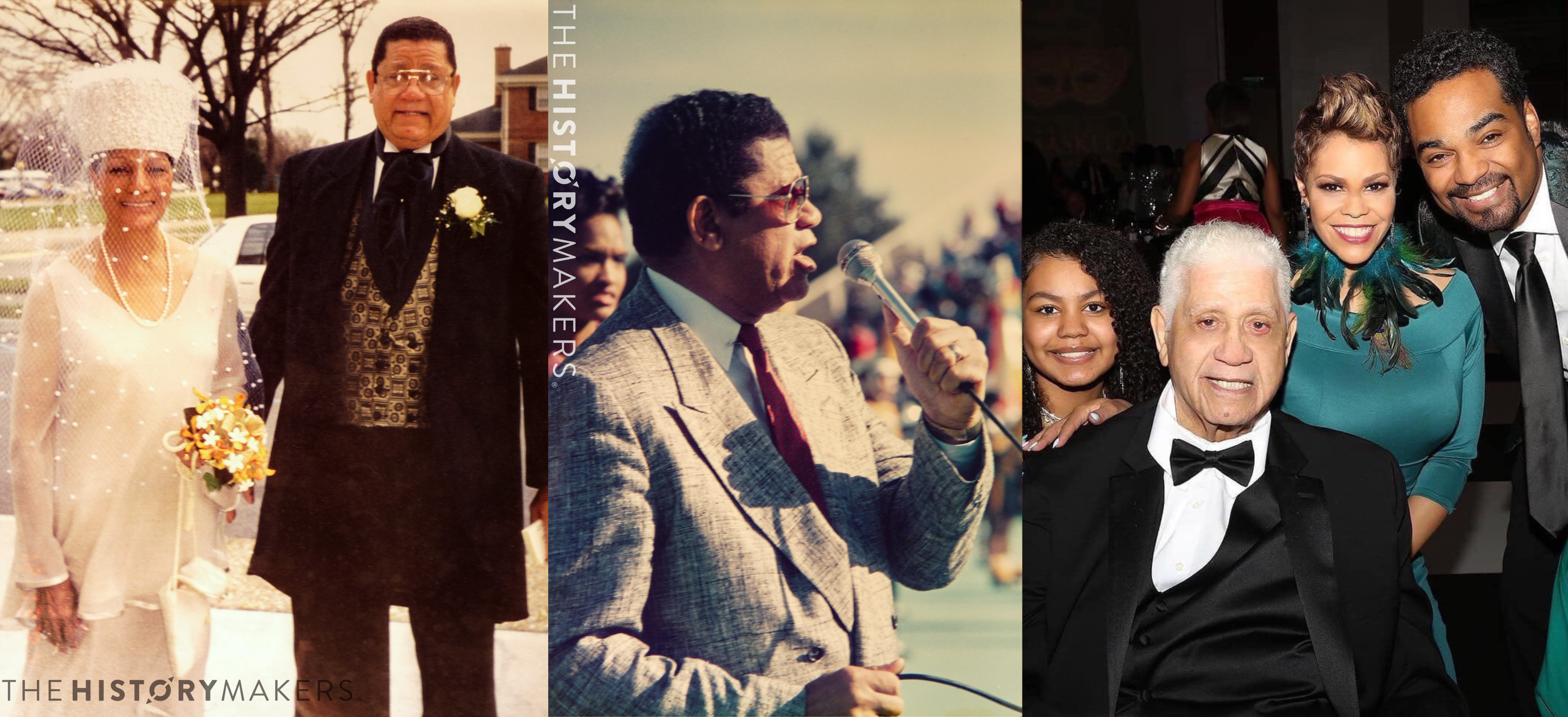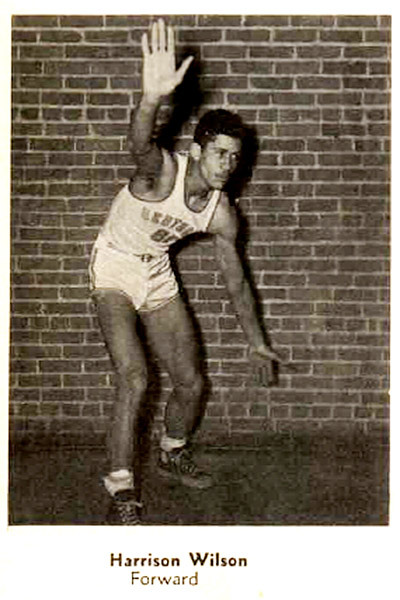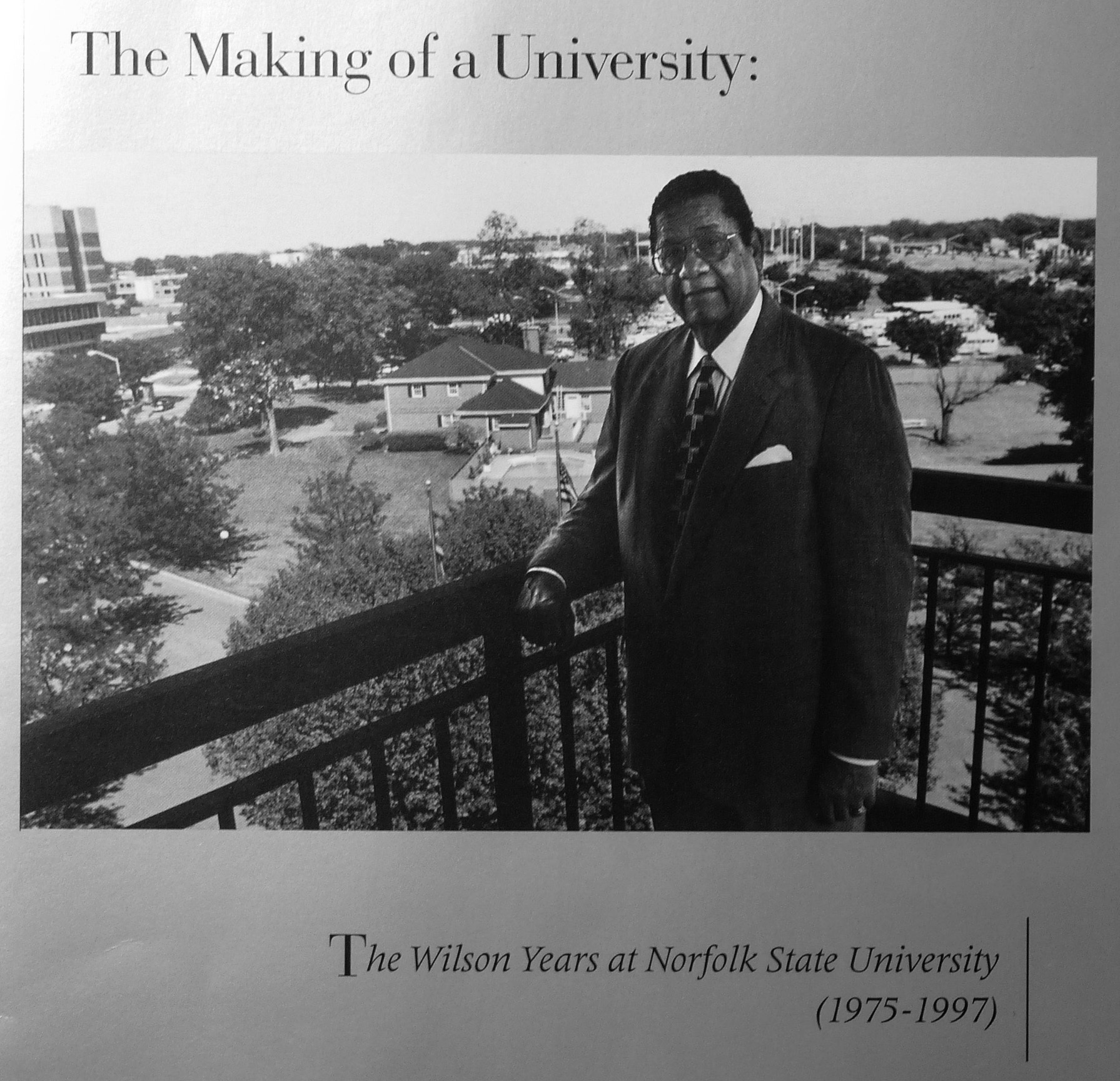Long Strides: Harrison B. Wilson and HBCUs
Though a trailblazer in his own right, Ben wasn't the first in his family to pursue a college education. Ben's father, Harrison Benjamin Wilson Jr., was a 6'4" giant in the world of HBCUs long before widespread integration allowed Black students to enter private institutions of higher education like Dartmouth en masse. Born in Amsterdam, New York to mother Marguerite and father Harrison Wilson Sr., Harrison enlisted in the Navy at sixteen, serving in the Pacific Theater from 1945-1947, after which he enrolled at Kentucky State University, an HBCU in Frankfurt, Kentucky.

"And I can still recall, my father would pick up... My father was tall, he was 6'3" and a half and I was short. So, his normal gait... you know, I had to take three steps to keep up with one of his."
A Storied Academic and Professional Path
Upon leaving the Navy, Harrison quickly ascended to star status in basketball, football, baseball, and track, while maintaining an impressive academic record on the pre-med track. Harrison also joined Kappa Alpha Psi, a historically Black fraternity whose members include Ralph Abernathy, Cedric the Entertainer, and scores of NBA and NFL players. Though he was discouraged from pursuing both athletics and medicine, Wilson continued to study health, first earning a master’s in Physical Health and later a PhD in health science and administration from Indiana University. While obtaining his higher education, Dr. Wilson began coaching basketball at Jackson State University (then Jackson State College), an HBCU in Jackson, Mississippi. Harrison describes his recruitment in his 2010 interview with the History Makers at this link.
Ben describes his childhood in Jackson as notable not only for its tight-knit community, but its collective focus on education.
“Well, I had a very supportive community. So, as I mentioned my nursery school and my elementary school was right there on the campus of the college. So, um, it was close-knit, the professors all knew each other ... so yes I very much had a strong sense of community, we were active members of our church.... There were two Black libraries in the town, Carver which was larger and a small library which was probably not much larger than your dormitory room at Dartmouth. And, I would spend many a Saturday sitting in that library reading books, and I loved reading. And so I felt I was nurtured… And I had these very unique opportunities to be exposed to others who were educated in addition to my parents, and they were always encouraging me. The people at my church, not all of whom had a significant amount of education, always encouraged me. And I recall when I started going away to school and I did in the ninth grade, I remember that final few Sundays at our church the elderly women would come up and give me a hug and encourage me, tell me how proud they were, and, and knew that I would represent them all in Massachusetts, which is where my school was."
While head coach at Jackson State, Dr. Wilson never had a losing season, eventually championing the Southwestern Athletic Conference in 1963-64. Dr. Wilson taught concurrently, also serving as chair of the university’s Department of Health and Physical Education from 1960-1967. Dr. Wilson then moved to Nashville, where he chaired the Department of Health and Physical Education at Tennessee State University, another HBCU.
"Planting the Seed" of Higher Education
Dr. Wilson also briefly served as assistant to the president of Fisk University (an HBCU in Nashville) before being named the second president of Norfolk State University in 1975. Throughout his twenty-two year tenure at Norfolk, the university graduated more Black teachers than any other university in the nation, while the Naval Reserve Officers Training Corps produced the second largest number of Black naval officers. In addition, the university’s annual budget multiplied six times over, enrollment increased, and the campus acquired fourteen new buildings and fifty-one acres of land.
Ben remembers the importance of education looming large throughout his childhood. Ben recounted his father beginning to “plant the seed” of aspirations to higher education and law school as early as fourth grade.
“And I can still recall, my father would pick me up and it was probably over at 9:00, 9:30, and we would walk across the campus together. My father was tall, he was 6’3” and a half and I was short. So, his normal gait, I was, you know, I had to take three steps to keep up with one of his. And I recall his saying we passed a law school in Indiana, “Man, it would be something if you went to school here one day.” And he was trying to plant that seed in my mind of going to college and perhaps going to law school in Indiana. And so I remember that like it was yesterday.”
Though an avid sports fan, Harrison was quick to evince his priorities to Ben during his college application process. Initially torn between attending Dartmouth and Williams, Ben describes his father’s influence on his decision:
“And my dad's says, 'I bet you want to go to Williams because you think you're going to be a football star.' [laughter] He says, he says — 'your value is from the neck up, not from the neck down.' And I hate it when my father said that, but he was correct. And he said, 'By the way, I've never heard of Williams, but I've heard of Dartmouth and I know about their coach.'"

Harrison is remembered now for an extensive history of advocacy for Black education and civil rights. Some of his notable friendships included famed NAACP field secretary and martyr Medgar Evers, activist and boxer Muhammid Ali, and singer-songwriter Johnny Cash. His full profile on the History Makers, a non-profit reearch and educational institution preserving the oral histories of notable Black Americans, can be found at this link.
- Legacy: Benjamin Wilson ‘73 (Emilie Hong ‘25, Fall ‘22)
- An Oral History Interview with Benjamin Wilson, '73
- Long Strides: Harrison B. Wilson and HBCUs
- "My mother's spirit is speaking through them": Anna G. Wilson in Life and Death
- "I wanted to know why": History and the Deep South
- "I had a chance": A Lifetime of Learning at Wilbraham Academy
- A Family Tradition: Life at Dartmouth
- Living With Legacy: Career, Love, and Community Post-Graduation
- Bibliography


